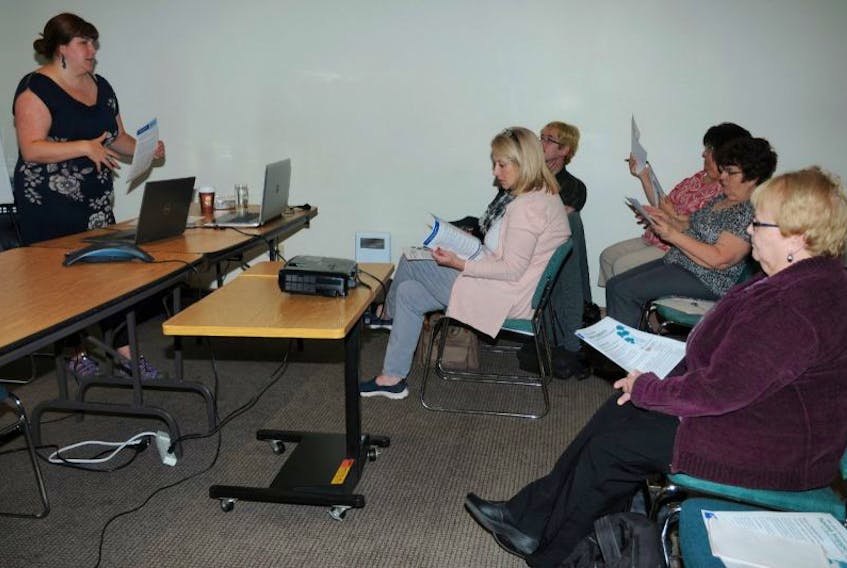The new model is going to be based on individualized funding, will be designed to provide more individual choice, and will focus on what the person wants or needs.
As government prepares to make these changes a series of sessions are taking place across the province, to explain the idea and to look for input from people who will be affected by the changes.
The sessions are a community-based initiative put together by the Newfoundland and Labrador Association for Community Living and the Coalition of Persons with Disabilities.
The sessions and workshops are being led by Pam Anstey, executive director of the Newfoundland and Labrador Association for Community Living, and Emily Christy, executive director of the Coalition of Persons with Disabilities.
The session in Labrador West was attended by a number of persons with a keen interest in the changes and how they would come about. Most were family members of persons with currently avail of community supports.
After an explanation of the idea behind the proposed changes and the goals of individualized funding, participants were invited to express their thoughts on the current programs and the proposed changes.
Most of those who attended said that many people are afraid of change. Some said what is currently in place for them works, but others say the current program comes with quite a few challenges.
One participant pointed to the fact that her son required different types of support, including housing, transportation, and community inclusion. She explained that the present system requires her to go to a number of different government offices, which at times is frustrating and very time consuming. It’s also difficult to understand what programs a person is eligible for.
The facilitators then explained the idea of the new model is to make it much easier for the client. It's a kind of one stop approach, the idea is the client or their representative meets and deals with one person, who then helps with the design of a program and obtain the needed services.
Heard throughout the public session was the need for a more co-ordinated plan for respite. The participants pointed out that there is a need for a home support agency, which doesn't exist in the area. This often leads to people going without respite or parents or others having to scramble to find respite.
Also heard was the hope that the new program would not lead to a bigger workload, or more stress for those responsible for those who need support.
In all there was a good discussion, questions about how will finances be handled for the new individualized funding, what happens when somebody who needs support no longer has a guardian or a parent to advocate for them, and how do you build a support team?
Many of those present expressed their frustrations with the current system, but also pointed out what worked for them. The new program and how it will differ from the present was discussed point by point.
A case study was then presented and participants had the opportunity to see how it is dealt with now and how it would be under the new individualized funding.
Participants then had a chance to express what their needs would be and how they would approach it under individualized funding.
The bottom line is the new model will be designed so clients will have a single point of access, point out what the clients need, and decide how they will get it to them. Instead of trying to fit people into a number of existing programs, it's more about building an individual program for each client.
The following day participants and others in the community were presented with a workshop that showed the whole process in much more detail.
The information collected at these sessions by the facilitators is brought back to the governments design team for the new program. The facilitators from Community Living, and COPD, say the input they get is designed to bring the voice of the people to government.
They also pointed out that there is still one more public sessions, October 23rd from 1 p.m. to 4 p.m. in St. John’s. Any person who missed the sessions in their hometown and would still like to participate can do so by teleconference. For more information, you can call 709-722-0790 or email [email protected].









